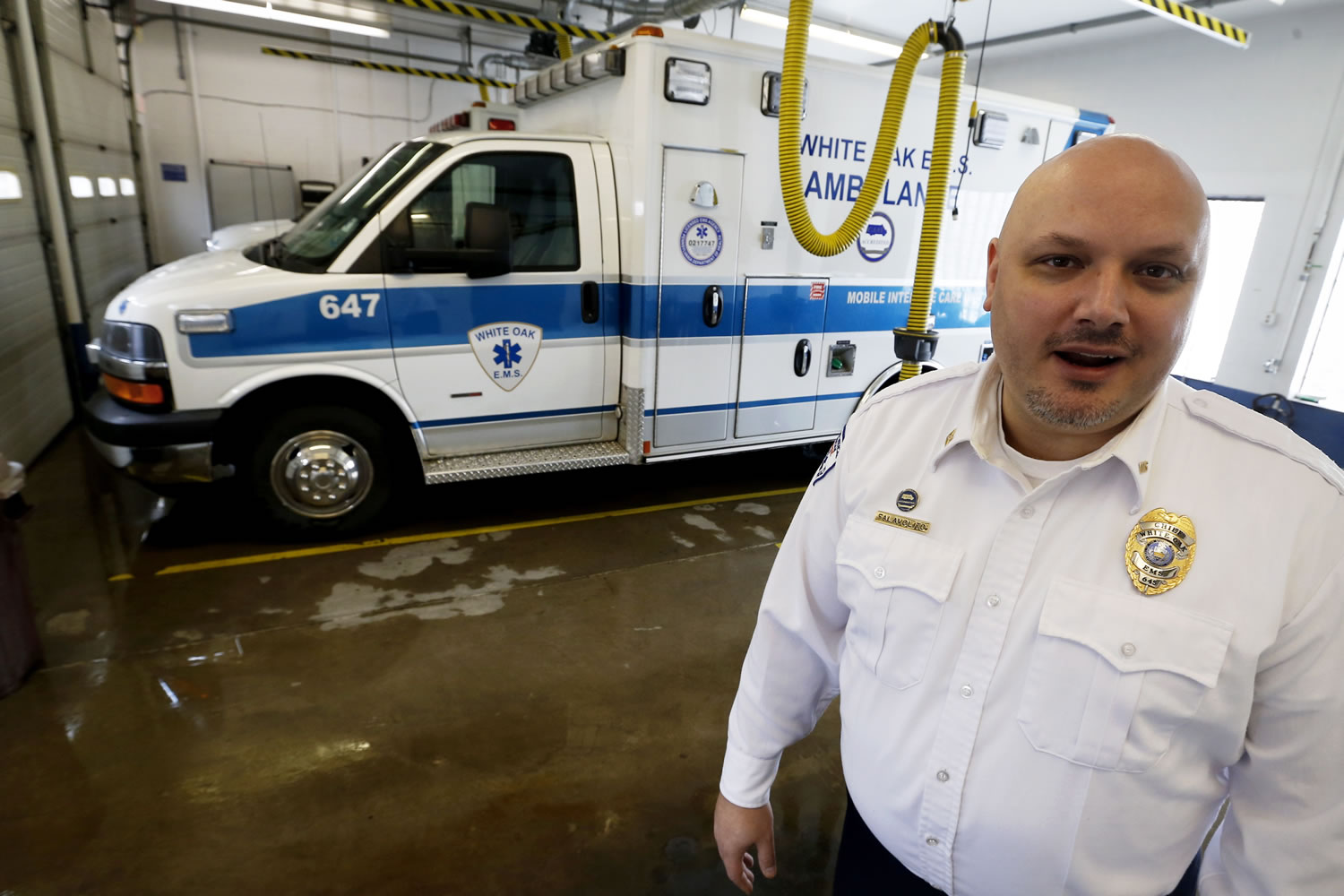A sudden change in the weather means real money for Paul Falavolito. When a snowstorm rolls in, the chief of a small, nonprofit ambulance service in White Oak, Pa., has to keep paramedics in ambulance bays longer. If there’s a break in the weather, he can let idling crews go home rather than paying them overtime.
So Falavolito was outraged last month when he flipped on DirecTV’s replacement weather service, WeatherNation TV. As a swirling snowstorm swept through the Northeast, closing schools and knocking out power, Falavolito watched meteorologist Rob Koch give a seven-day forecast for Los Angeles: Mostly sunny, with highs in the 70s and 80s.
“I was just extremely disappointed,” says Falavolito, 43. “I’m reading tweets about hundreds of thousands of people on the East Coast that don’t have power. WeatherNation was talking about the weather in Los Angeles. To me, it’s very unacceptable.”
Since Jan. 13, El Segundo, Calif.-based DirecTV has replaced The Weather Channel with WeatherNation TV in a dispute over fees. The move is angering customers — people like Falavolito, who say WeatherNation is a poor substitute that offers rote seven-day forecasts without the in-depth analysis of people like Weather Channel star Jim Cantore.
Standoffs like the one between The Weather Channel and DirecTV are becoming commonplace as TV content producers demand higher fees from the cable and satellite companies that carry their programming. The higher fees, say pay-TV providers, result in ballooning bills for consumers. What makes the current dispute different is that DirecTV is raising a new argument for the smartphone era: Why pay high fees for weather reports when consumers can get all sorts of free forecasts on their mobile devices?
There are more than a dozen weather apps for smartphones. Apple’s Siri voice assistant can even tell you if you need an umbrella. What’s more, say DirecTV officials, when viewers turn on The Weather Channel, they have a 40 percent chance of catching a reality TV program.
Although DirecTV’s arguments ring true for tech-savvy consumers, hardcore weather junkies say better information matters.
Take Chris Gemmell, a 67-year-old former business consultant who now runs a lavender farm in Knox, Pa., with his wife. When the forecast predicts consecutive days of summer rain, Gemmell doubles his staff to some 20 workers, who dig trenches and drain fields to prevent soon-to-be-soaked lavender roots from rotting. He prefers that the work is done before the downpour, “so you’re not out there in your Wellies.”
On CNN, Gemmell saw the traffic jams in Atlanta that resulted from a sudden winter storm and was scornful of WeatherNation’s “rote manner” of reporting seven-day forecasts around the country.
“There’s no real reason to have the audio up,” Gemmell says. “All the meteorologist is saying is it’s going to be 14 for a high and 6 for a low in Cleveland. I can read that. Then he’ll move on. There’s no science behind what we should expect.”
The dispute has provided a major opportunity for Denver-based WeatherNation TV. Overnight, its distribution jumped from 10 million pay TV homes to 30 million. The newfound attention has brought a new level of scrutiny to its weather reports, some of which plays out on Twitter in less-than-polite terms.
Its executives take umbrage at the criticism that its broadcasts often are on tape-delay during severe weather events.
“Let me be real clear: We don’t run on a three-hour loop,” says Michael Norton, president of WeatherNation. If some city forecasts are repeated, it’s because “those models don’t change minute to minute.”
When it comes to severe weather, like the ice storm that turned Atlanta’s highways into a slick parking lot, WeatherNation sometimes relies on local TV station partners like Atlanta’s WXIA-TV for coverage. And sometimes it puts its own boots on the ground.
“During Hurricane Sandy, I had seven crews along the East Coast,” Norton says. “I think there’s a misunderstanding of what we provide.”
Paul Douglas, the veteran meteorologist who founded the precursor to WeatherNation TV in 2008, continues to be the channel’s best-known weatherman. He says the company is trying to balance in-depth coverage of major storms with nationwide forecasts, because “the rest of America sort of feels left out in the cold sometimes.”
“Achieving that balance is tricky but it’s essential and something we take very seriously,” Douglas says.
WeatherNation TV is working with DirecTV to improve its service, and on Monday it enabled a “local button” on subscribers’ remote controls that displays a quick snapshot of the local weather on the TV. A graphic showing weather specific to the ZIP code area will pop up every 10 minutes, starting within a week. And in March, WeatherNation TV will launch a six-screens-in-one coverage platform for weather events that are potentially life-threatening. Viewers will be able to zoom in on the main WeatherNation feed, local broadcast stations in affected areas, live remotes from meteorologists in the field, radar maps, advisories or live coverage from national networks like CNN and Fox.
DirecTV’s chief content officer, Dan York, says the new services mean DirecTV is offering “more in-depth local and severe weather coverage than any other TV provider.”
Since the blackout, The Weather Channel has been running an all-out campaign to shame DirecTV into reaching a deal. Late last week, the company took out ads in newspapers including USA Today, Miami Herald and The Wall Street Journal, accusing DirecTV of breaking promises, dropping channels and at the same time, hiking monthly bills by 3.7 percent. It claims its protest website, www.keeptheweatherchannel.com, has had 6.4 million visitors and says that more than 283,000 DirecTV customers have pledged to switch providers due to the blackout.




